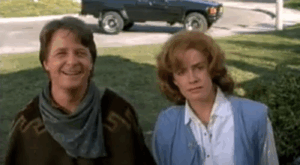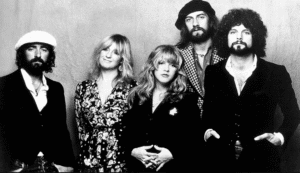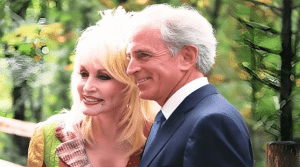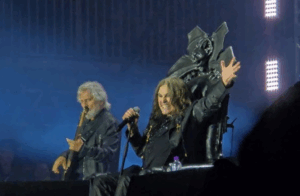80 and Still Strumming: Celebrating Dickey Betts’ Birthday with 10 Iconic Songs
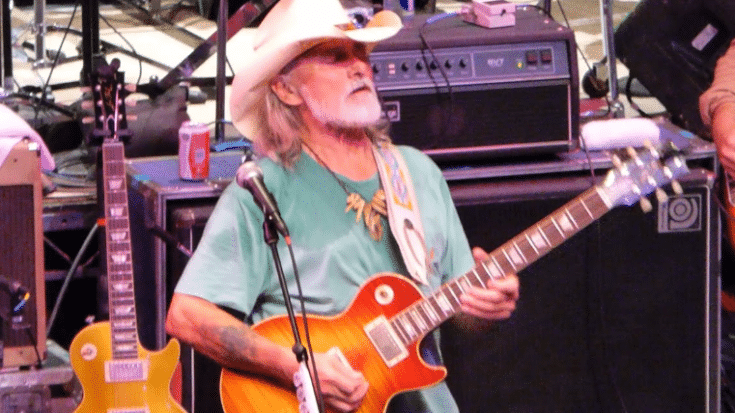
via E Flores / YouTube
Dickey Betts, co-founder of the legendary Allman Brothers Band, turns 80 today, and what better way to celebrate than by delving into some of his timeless musical contributions? Our in-depth exploration of the Top 10 Dickey Betts Songs takes you on a journey through the rootsier side of the Allman Brothers Band’s sound, a highlight to Betts’ principal legacy within the group.
The Allman Brothers Band’s unique blend of blues, jazz, and Southern influences owes much to Betts, who, influenced by the Deep South sounds of banjo and fiddle, added a distinctive flavor that defined the Southern Rock genre. Despite the band’s intricate blending of styles being short-lived due to tragic events, Betts’ role became more prominent after Duane Allman’s untimely death.
Our detailed countdown of Top 10 Dickey Betts Songs spans both his solo career and Rock & Roll Hall of Fame journey with the Allman Brothers Band, showcasing the depth of his musical prowess.
#10. “High Falls” — Win, Lose or Draw (1975)
A shining moment in an otherwise challenging period for the band, “High Falls” stands out with its captivating 14-minute instrumental arrangement. The intricate musical layers showcase Betts’ leadership during a tumultuous time for the Allman Brothers Band.
#9. “Highway Call” — Highway Call (1974)
Betts’ solo venture after the group’s struggles, “Highway Call” reflects his country-inflected style and deeper emotional exploration. This solo effort not only showcased Betts’ resilience but also hinted at the individualistic paths the band members were navigating.
#8. “Les Brers in A Minor” — Eat a Peach (1972)
A sophisticated instrumental piece on an album born from tragedy, showcasing Betts’ wit and ferocious imagination post-Duane Allman. “Les Brers in A Minor” not only pays homage to the departed Allman but also signals the band’s determination to carry on with their distinctive sound.
#7. “Revival” — Idlewild South (1970)
Betts’ initial composing credit on the Allmans’ sophomore effort, blending country-inflected instrumentals with a gospel-tinged uplift. “Revival” marked Betts’ emergence as a songwriter and hinted at the band’s diverse musical influences beyond blues and jazz.
#6. “Seven Turns” — Seven Turns (1990)
A rustic title track from the Allmans’ comeback album, marking a new era with fresh talents like Warren Haynes and Allen Woody. “Seven Turns” not only signaled a resurgence for the band but also showcased Betts’ ability to adapt to new musical dynamics.
#5. “Blue Sky” — Eat a Peach (1972)
Crafted as a tribute to Betts’ wife, this dream-like, pastoral song with harmonies by Duane Allman brightens any cloudy day. “Blue Sky” reflects Betts’ ability to infuse personal sentiment into his music, creating a timeless and uplifting piece.
#4. “Jessica” — Brothers and Sisters (1973)
Inspired by Betts’ daughter Jessica, this Django Reinhardt-inspired instrumental captures innocence and joy during trying times. “Jessica” not only pays homage to family but also showcases Betts’ ability to find inspiration in the midst of personal challenges.
#3. “Bougainvillea” — Dickey Betts and Great Southern (1977)
A hidden gem showcasing Betts’ post-Duane Allman creativity, co-written by Don Johnson, presenting a snapshot of future collaborations. “Bougainvillea” serves as a testament to Betts’ continued exploration of musical landscapes beyond the Allman Brothers Band.
#2. “Ramblin’ Man” — Brothers and Sisters (1973)
The Allman Brothers Band’s only Top 10 hit single, marking a foundational shift toward a rootsy direction and bidding farewell to Berry Oakley. “Ramblin’ Man” not only became a commercial success but also signaled Betts’ leadership role in steering the band towards a new musical identity.
#1. “In Memory of Elizabeth Reed” — Live at Fillmore East (1971)
Named after a tombstone inscription, this instrumental masterpiece showcases Betts and Duane Allman’s harmonized guitar lines, reaching new heights during their legendary Fillmore East performance. “In Memory of Elizabeth Reed” stands as a defining moment in the Allman Brothers Band’s history, highlighting Betts’ exceptional songwriting and guitar prowess.
















